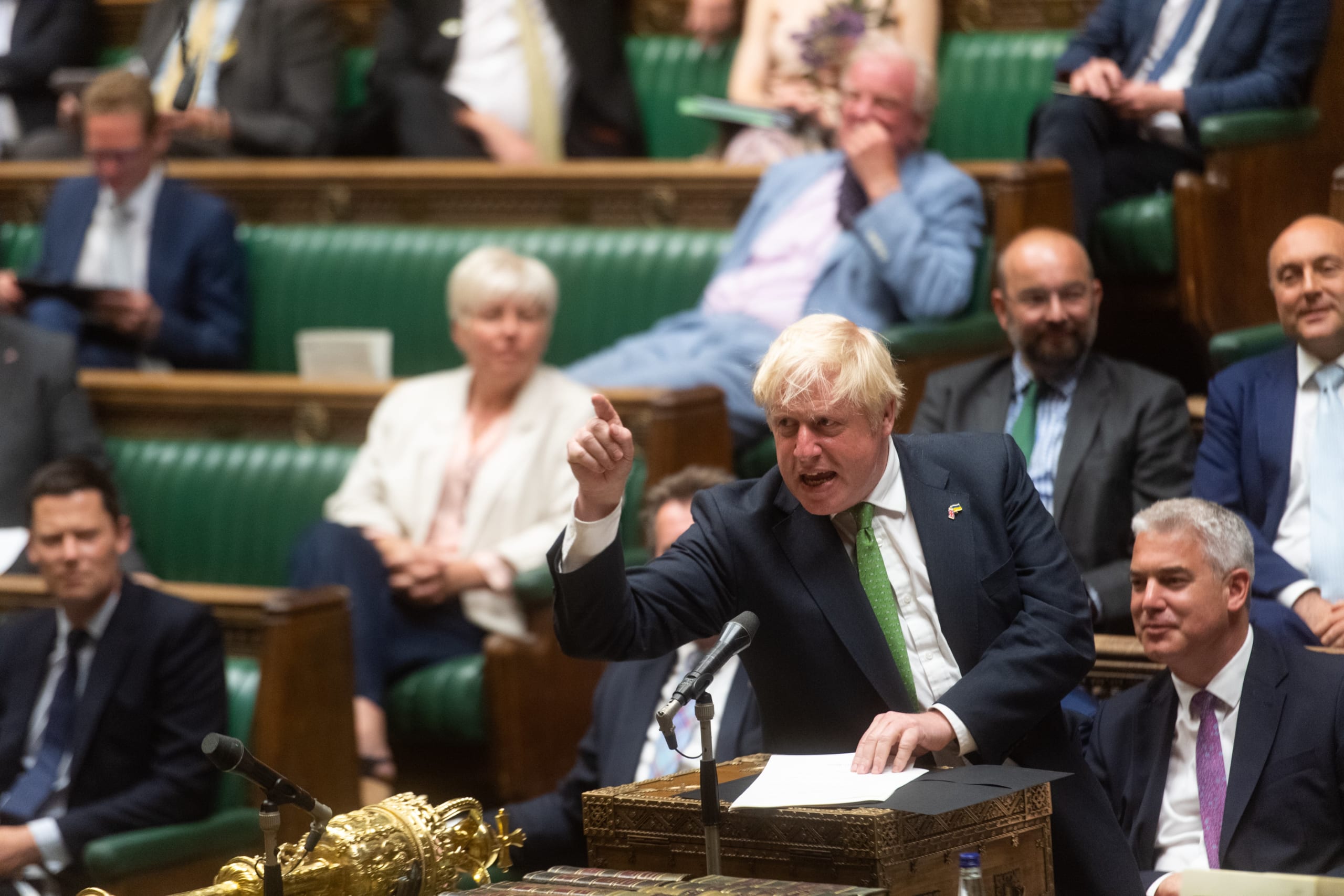[wr_row width=”boxed” background=”none” solid_color_value=”#FFFFFF” solid_color_color=”#ffffff” gradient_color=”0% #FFFFFF,100% #000000″ gradient_direction=”vertical” repeat=”full” img_repeat=”full” autoplay=”yes” position=”center center” paralax=”no” border_width_value_=”0″ border_style=”solid” border_color=”#000″ div_padding_top=”10″ div_padding_bottom=”10″ div_padding_right=”10″ div_padding_left=”10″ ][wr_column span=”span12″][wr_text el_title=”Tóm tắt” text_margin_top=”0″ text_margin_bottom=”0″ enable_dropcap=”no” appearing_animation=”0″ disabled_el=”no” ]
Thông điệp Liên bang(State of the Union address) là bài diễn văn then chốt hàng năm mà Tổng thống Hoa Kỳ trình bày trước toàn thể thành viên hai viện của Quốc hội, trong đó Tổng thống nêu bật những việc ông đã làm trong năm qua và vạch ra kế hoạch công việc trong năm tới. Trong bối cảnh năm 2015 hứa hẹn nhiều đổi thay và thách thức trước mắt, thông điệp 2015 của Tổng thống Mỹ Barack Obama không chỉ được người dân Mỹ mà còn được cả thế giới mong đợi vì những quyết sách từ nước Mỹ luôn có tầm ảnh hưởng nhất định đến rất nhiều các quốc gia và châu lục khác. Ông Obama đã gửi gắm gì tới người dân Mỹ trong thông điệp năm nay của mình? Hãy cùng English4ALL tìm hiểu và học thêm rất nhiều từ mới tiếng Anh bổ ích trong chuyến tàu ngày hôm nay tới English in the News. All aboard!
[/wr_text][wr_text el_title=”WHO IS POPE” text_margin_top=”0″ text_margin_bottom=”0″ enable_dropcap=”no” appearing_animation=”slide_from_left” appearing_animation_speed=”Medium” disabled_el=”no” ]
WHAT DID PRESIDENT OBAMA SAY IN HIS 2O15 STATE OF THE UNION ADDRESS?
[/wr_text][wr_video el_title=”President Obama” video_source_link_youtube=”https://www.youtube.com/watch?v=cse5cCGuHmE” video_youtube_dimension_width=”650″ video_youtube_dimension_height=”400″ video_youtube_autoplay=”1″ video_youtube_loop=”0″ video_youtube_modestbranding=”1″ video_youtube_rel=”1″ video_youtube_showinfo=”1″ video_youtube_autohide=”2″ video_youtube_cc=”0″ video_alignment=”center” video_margin_top=”10″ video_margin_bottom=”10″ appearing_animation=”0″ disabled_el=”no” video_sources=”youtube” ][/wr_video][/wr_column][/wr_row][wr_row width=”boxed” background=”none” solid_color_value=”#FFFFFF” solid_color_color=”#ffffff” gradient_color=”0% #FFFFFF,100% #000000″ gradient_direction=”vertical” repeat=”full” img_repeat=”full” autoplay=”yes” position=”center center” paralax=”no” border_width_value_=”0″ border_style=”solid” border_color=”#000″ div_padding_top=”10″ div_padding_bottom=”10″ div_padding_right=”10″ div_padding_left=”10″ ][wr_column span=”span12″][wr_divider div_margin_top=”0″ div_margin_left=”0″ div_margin_bottom=”25″ div_margin_right=”0″ div_border_width=”5″ div_border_style=”ridge” div_border_color=”#f21818″ divider_width=”100″ disabled_el=”no” ][/wr_divider][/wr_column][/wr_row][wr_row width=”full” background=”none” border_width_value_=”0″ border_style=”solid” border_color=”#000″ div_padding_top=”10″ div_padding_left=”10″ div_padding_bottom=”10″ div_padding_right=”10″ ][wr_column span=”span6″][wr_image image_file=”http://www.english4all.vn/wp-content/uploads/2015/01/Obama-address.jpg” image_size=”full” link_type=”no_link” image_container_style=”img-rounded” image_alignment=”center” appearing_animation=”fade_in” appearing_animation_speed=”Medium” disabled_el=”no” ][/wr_image][wr_text el_title=”From BBC News” text_margin_top=”0″ text_margin_bottom=”0″ enable_dropcap=”no” appearing_animation=”0″ disabled_el=”no” ]US President Barack Obama has declared an end to the
financial crisis and pledged economic policies to benefit all Americans, in his annual
State of the Union address to
Congress.
In a speech devised to appeal to working families, Mr Obama outlined his strategy for “middle-class economics”.
“It’s now up to us to choose who we want to be over the next 15 years,” he said.
But the plans are unlikely to make it past a Republican-controlled Congress.
Most of this speech must be seen as essentially aspirational, given the Republican control of both houses of Congress – and their antipathy towards the president
So if this speech stands little chance of becoming legislative reality, what was it all about?
First of all legacy. This is a president who seems to be following Winston Churchill’s maxim that history is written by the winners.
In a speech which he described as more focused on values than policies, Mr Obama declared America had turned a page after the worst recession since the Depression.
The president said he planned to build on this growth by providing working families with help in the form of sick and maternity leave and affordable childcare.
“Will we accept an economy where only a few of us do spectacularly well? Or will we commit ourselves to an economy that generates rising incomes and chances for everyone who makes the effort?”
Mr Obama’s speech included plans to build a competitive economy by improving America’s infrastructure and providing free access to community college.
“This plan is your chance to graduate ready for a new economy, without a load of debt,” he said.
At the weekend, the White House pledged to close tax loopholes on large inheritances, raise capital gains tax on the richest earners from 23.8% to 28% and introduce new fees on US financial firms with assets about $50bn.
Some senior members of the Republican party dismissed this as “class warfare”.
Other plans outlined by the president include:
improve statutory sick leave and minimum wage
help nine million students to pay for community college
stronger cybersecurity and consumer protection
continue with plans to shut the prison in Guantanamo
equal pay for men and women
On foreign policy, Mr Obama said America reserved the “right to act unilaterally” in hunting down terrorists and called on Congress to pass a resolution to authorise the use of force against Islamic State.
The president reiterated his belief that the US could negotiate an agreement to prevent Iran gaining nuclear weapons and said he would veto any new sanctions bill which threatens this.
He said his decision to end America’s long-standing policy on Cuba and try something new had the potential to “end a legacy of mistrust in our hemisphere“.
Alan Gross, who was recently released after spending five years in a Cuban prison, was among Michelle Obama’s guests to hear the president.
On Wednesday, Russian Foreign Minister Sergei Lavrov denounced the speech as an indication of what he said was the determination of the US to dominate international affairs.
“Americans have set a course for confrontation,” Mr Lavrov said. “Obama’s address yesterday shows that there’s just one thing at the heart of [their] philosophy: ‘We are number one’… It shows that the United States wants to dominate the world.”
‘Best for America’
In ending his address, Mr Obama said he was optimistic he could work with Congress, despite months of political gridlock.
Foreign policy always plays second fiddle at this event but Obama said only 15,000 US troops remain in Iraq and Afghanistan
“I have no more campaigns to run. My only agenda for the next two years is the same as the one I’ve had since the day I swore an oath on the steps of this Capitol – to do what I believe is best for America,” he said.
But consensus with the Republican party on many of the issues he outlined is unlikely.
In their official rebuttal, Republican senator and rising star, Joni Ernst, said Americans have not seen solutions from Mr Obama and criticised his health and immigration policies.
“Americans have been hurting, but when we demanded solutions, too often Washington responded with the same stale mindset that led to failed policies like Obamacare,” she said
The senator called on Mr Obama to work with Republicans on issues where they might have common ground – including a trade deal and tax code reform.
Source: BBC News.[/wr_text][wr_text el_title=”Your Dictionary copy” text_margin_top=”0″ text_margin_bottom=”0″ enable_dropcap=”no” appearing_animation=”0″ disabled_el=”no” ]Send your translation of the news or any question to English4ALL Team right here!
[contact-form-7 id=”101″ title=”Contact form 1″]
[/wr_text][wr_text el_title=”Your Dictionary” text_margin_top=”0″ text_margin_bottom=”0″ enable_dropcap=”no” appearing_animation=”0″ disabled_el=”no” ]Send your translation of the news or any question to English4ALL Team right here!
[contact-form-7 id=”101″ title=”Contact form 1″]
[/wr_text][/wr_column][wr_column span=”span6″][wr_text el_title=”Some words you don” text_margin_top=”0″ text_margin_bottom=”0″ enable_dropcap=”no” appearing_animation=”0″ disabled_el=”no” ]SOME WORDS YOU DON’T KNOW, DO YOU?
financial crisis (n): khủng hoảng tài chính
a time of great disagreement, confusion, or suffering:
The country’s leadership is in crisis.
an economic/financial crisis
I’ve got a family crisis on my hands – my 16-year-old sister is pregnant.
State of the Union address (n): Thông điệp liên bang.
Congress (n): Quốc hội Mỹ, Đại hội
a large formal meeting of representatives from countries or societies at which ideas are discussed and information is exchanged:
an international/medical congress
the congress of the Australian Council of Trade Unions
Appeal (n): Yêu cầu, kêu gọi
a request to the public for money, information, or help:
They’re launching (= starting) an appeal to raise money for famine victims.
Aspirational (adj): đầy khát vọng/tham vọng.
showing that you want to have more money and a higher social position than you now have:
High-end smartphones have become aspirational status symbols, especially among the young.
Antipathy (n): ác cảm
a feeling of strong dislike, opposition, or anger:
Despite the deep antipathies between them, the two sides have managed to negotiate an agreement.
Declarations of racial antipathy against ethnic minorities will not be tolerated.
He is a private man with a deep antipathy to/towards the press.
Legacy (n): di sản, gia sản
something that is a part of your history or that remains from an earlier time:
The Greeks have a rich legacy of literature.
The war has left a legacy of hatred.
Maxim(n): châm ngôn
a short statement of a general truth, principle, or rule for behavior
Recession (n): suy thoái (kinh tế)
a period when the economy of a country is not successful and conditions for business are bad:
The country is sliding into the depths of (a) recession.
maternity leave – sick leave (n): nghỉ thai sản – nghỉ ốm
infrastructure (n): cở sở hạ tầng
the basic systems and services, such as transport and power supplies, that a country or organisation uses in order to work effectively:
The war has badly damaged the country’s infrastructure.
loophole (n) lỗ hỗng của luật pháp.
a small mistake in an agreement or law that gives someone the chance to avoid having to do something:
tax loopholes
The company employed lawyers to find loopholes in environmental protection laws.
Cybersecurity (n): an ninh mạng
ways of protecting computer systems against threats such as viruses:
The government’s counterterrorism team will also focus on cybersecurity efforts.
Unilateral- unilaterally (adj-adv): đơn phương
involving only one group or country:
The party leader has actually declared her support for unilateral nuclear disarmament (= giving up her country’s nuclear weapons without first waiting for other countries to do the same).
resolution (n): nghị quyết/quyết tâm.
an official decision that is made after a group or organization have voted:
to approve/adopt a resolution
[+ to infinitive] The United Nations passed (= voted to support) a resolution to increase aid to the Third World.
veto (v -n): (quyền) phủ quyết
an official power or right to refuse to accept or allow something:
The Ministry of Defence has the power of veto over all British arms exports.
In theory the British government could use its veto to block this proposal.
hemisphere (n): bán cầu
half of a sphere, especially the Earth:
the northern hemisphere
determination (n): quyết tâm, ý chí
the ability to continue trying to do something, although it is very difficult:
a man of fierce/ruthless determination
[+ to infinitive] You can’t help but admire her determination to succeed.
gridlock (n): tình trạng ùn tắc (giao thông), kẹt xe.
a situation where roads in a town become so blocked by carsthat it is impossible for any traffic to move:
A car breaking down at rush hour could cause gridlock across half the city.
Rebuttal (n): sự bác bỏ
a statement that says that something is not true:
She issued a point-by-point rebuttal of the company’s accusations.
senator (n): Thượng nghĩ sĩ.
a politician who has been elected to a Senate:
Only two senators voted against the bill.
[as form of address] It’s a pleasure to meet you, Senator.[/wr_text][/wr_column][/wr_row][wr_row width=”full” background=”none” border_width_value_=”0″ border_style=”solid” border_color=”#000″ div_padding_top=”10″ div_padding_left=”10″ div_padding_bottom=”10″ div_padding_right=”10″ ][wr_column span=”span12″][wr_text el_title=”Hoàng Huy” text_margin_top=”0″ text_margin_bottom=”0″ enable_dropcap=”no” appearing_animation=”0″ disabled_el=”no” ]
HOÀNG HUY.
Bản quyền thuộc về English4ALL.vn
Bản tin dẫn nguồn từ BBC News.
[/wr_text][/wr_column][/wr_row]










